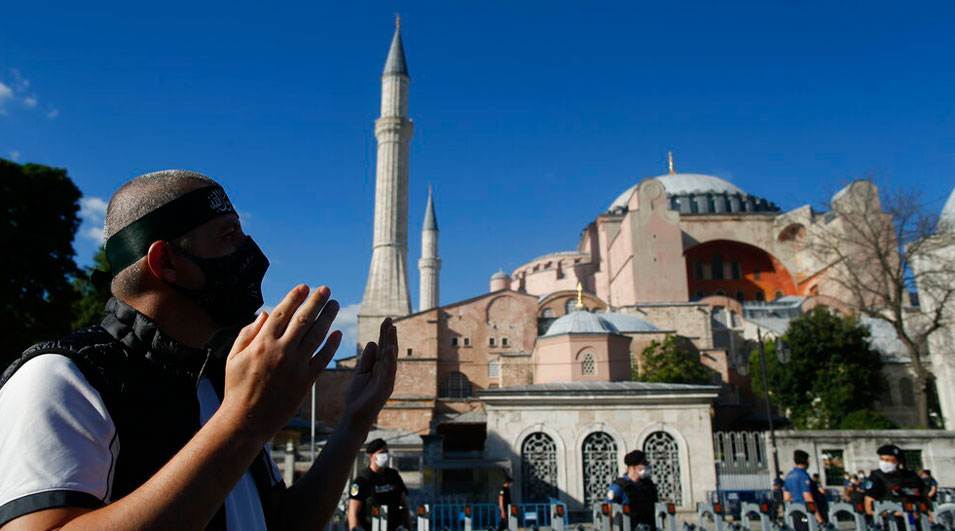In November 2019, the Supreme Court of India ruled that the disputed land in Ayodhya would be handed over to a government trust to build a Ram temple and that another piece of land be given for the construction of a mosque elsewhere in Ayodhya. Next year, in July 2020, Turkey, the Hagia Sophia was reconverted into a mosque. What do these two incidents, occurring in two different countries with disparate histories, have in common? They seem to signal the onset of a major change in political imagination— the weakening of the appeal of political secularism as an ideology. Across the globe, political secularism is giving way to newer — often religion-based — ideologies for political mobilisation to draw popular support and gain legitimacy.
Any attempt to analyse this phenomenon will require a conceptual tracing of the idea of ‘political secularism’ itself. This ideology emerged in a particular spatial-historical context: the European Enlightenment of the seventeenth and eighteenth centuries. For the first time in human history, a neat separation between the spheres of religion and politics was imagined. Political secularism eventually emerged as a universal ideal as one of the foundational pillars shaping the formation of modern nation states in many parts of the world.
In both India and Turkey, the modern nation state was carefully built by wholeheartedly embracing the ideology of secularism. Jawaharlal Nehru and Mustafa Kemal Ataturk provided the ideological grounding for forward-looking liberal democracies. This came to be identified as Nehruvianism and Kemalism, respectively. For India, political secularism meant equality and respect for all religions; for Turkey it meant a de-Islamisation of politics and culture. But the common path of secularism was envisioned to mark a break with pre-modern pasts and carve out a distinctively modern future. Interestingly, in both India and Turkey, political secularism is being replaced by the concerted deployment of religious ideologies as the basis of populist regimes.
In India, this has taken the form of imagining a Hindu nation, the propagation of Hindutva, and the forging of a homogeneous Hindu identity by invisibilising the fissures within the Hindu community. In Turkey, it has corresponded with the revival of a political Islamic identity tinged with Ottoman nostalgia, leading the nation towards Islamic ultranationalism. The fundamentally elitist nature of Nehruvian and Kemalist values, adapted from the West, has led to them crumbling in the face of populist counter-ideologies. India’s long history of cultural and religious pluralism, though always choppy, now suddenly seems to be under an existential threat. Turkey’s embrace of Western, secular and liberal culture, equally uneven across Turkish society, is under attack too. From imagining universities as ‘temples’ of liberal and secular education, New India now wants universities to endorse Vedic knowledge; from banning head scarves for women to now making it mandatory for women entering a mosque, the transitions have been striking in Turkey.
The project to make Western Enlightenment universal seems to have met its expiry date. The search for alternative ideologies and their palpable influence on the popular imagination signal yet another moment in the reinvention of modernity in the non-Western world. Both India and Turkey are attempting a cultural rejection of the West, while clinging tightly to the global neoliberal economy. ‘Civilisational populism’ has emerged as an effective tool to mask the grim political and economic realities. The failure of reason has signalled the triumph of emotion.
How should we counter the impending dangers of religious fanaticism mushrooming within these polities? From where do we derive our visions of a just society? When emotions become the sole ground for legitimising political ideologies, can we even hope for a just society?
Shaoni Shabnam is Assistant Professor, St Xavier’s College (Autonomous)










